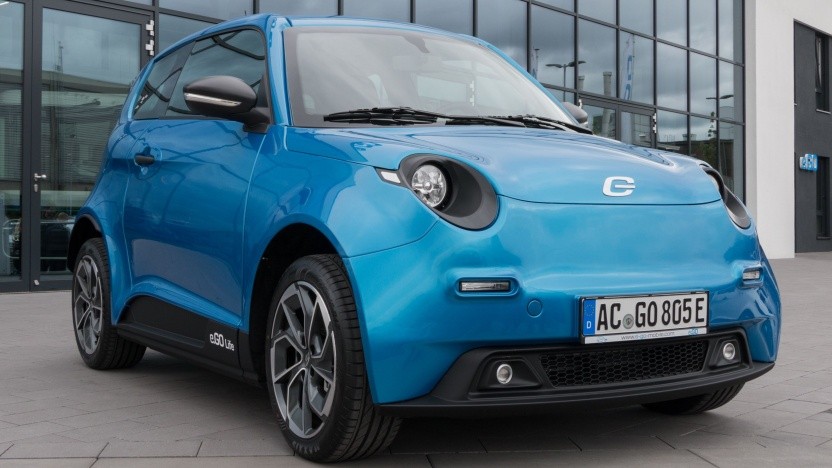from small electric car e.Go should still be produced this year 1,000 copies. But problems with the battery slow down the Aachen manufacturer.
September 12, 2019, 12:42 pm,
Friedhelm old man

The e.Go comes a little later on the streets.
(Image: Werner Pluta / Golem.de)
The Aachen manufacturer of the electric small car e.Go has admitted production problems. Tests have shown that the battery is not sufficiently watertight, Company founder Günther Schuh told Westdeutscher Rundfunk (WDR). Therefore, rework is required. Schuh hopes to be able to build 600 instead of the planned 1,000 vehicles this year.
Job market
Stadtwerke München GmbH, Munich
IT Service Center of the Bavarian Justice, Augsburg, Munich, Schwabmünchen
The e.Go is currently the cheapest electric car on the German market with a starting price of just under 16,000 euros before deducting the purchase price. Of the three versions available, however, the model with the largest battery, the e.Go Life 60, was initially to be built. With a battery capacity of 23.5 kilowatt hours (kWh), the car should come with a load about 145 km (according to WLTP). The e.Go Life 60 should cost 20,000 euros.
100,000 cars a year?
At the presentation of the production version of the e.Go in March 2019 Shoe had announced that the 3,400 pre-orders should be built later this year. Now Schuh wants to serve the remaining pre-orders until April. He believes that a total production of up to 10,000 cars will be possible next year. In March he had planned to build around 15,000 cars in two shifts next year. Starting in 2021, production will be around the clock. In 2024, around 100,000 electric cars were to be built in Aachen.
In three versions, the manufacturer offers the car: as e.Go Life 20, 40 and 60, named after the maximum power of the drive. In addition to the drive, the cars differ in the capacity of the battery and thus the range: The battery of the smallest version has a capacity of 14.5 kWh and allows a range of 100 km to WLTP. The medium version with 17.5 kWh battery creates 113 km. Depending on the drive power, the maximum speed varies: 112 km / h, 123 km / h and 142 km / h.
Topics Pages:
electric car
automobile
electromobility
sustainability
technology
science
